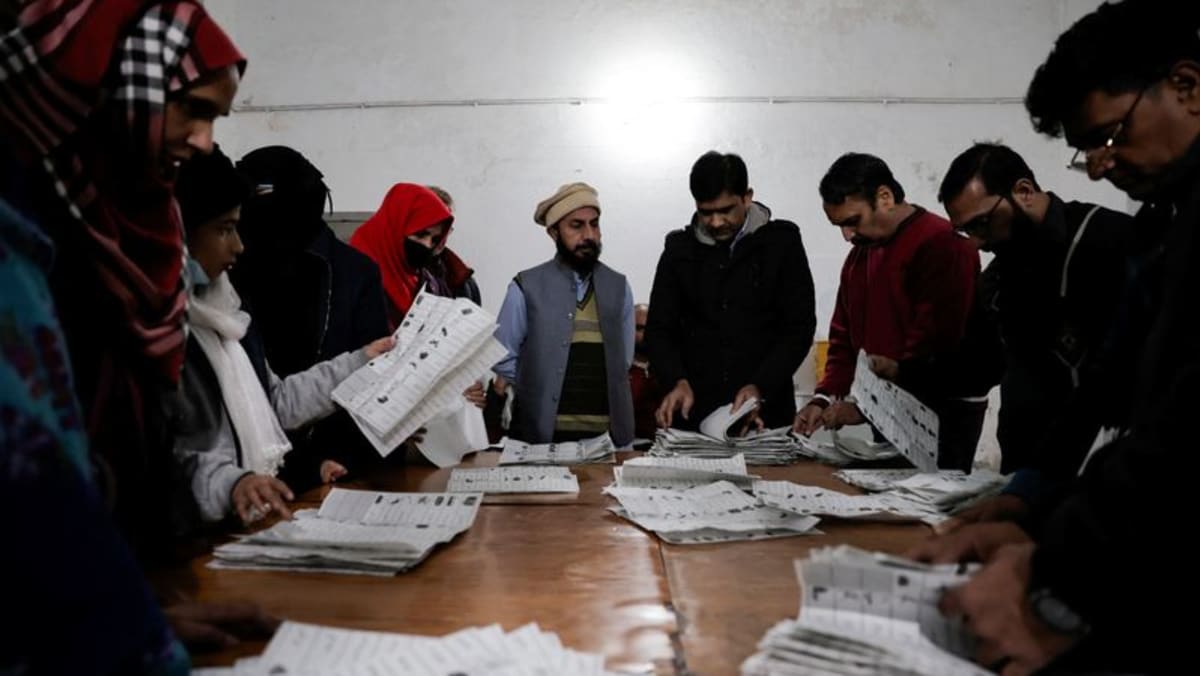
ISLAMABAD: Pakistan’s two largest political parties were on Monday (Feb 12) wrangling over who will be prime minister after an inconclusive election last week forced them to join forces and try to form a coalition in a parliament dominated by independents.
The squabbling is likely to deepen concerns about the stability of the nation which is mired in an economic crisis and battling a surge in militant violence.
Pakistan’s benchmark share index fell 3.4 per cent on Monday (Feb 12), its first day of trading after the results of the Feb 8 vote.
Former prime ministers Imran Khan and Nawaz Sharif both declared victory on Friday, with independent candidates backed by the jailed Khan forming the largest group of 93 members of a total of 264 seats for which results were declared.
However, Khan cannot become prime minister from jail and his grouping cannot form a government as they nominally ran as independents as his party was barred from standing.
Sharif’s Pakistan Muslim League-Nawaz (PML-N) was the largest recognised party with 75 seats and the Pakistan Peoples Party (PPP) of Bilawal Bhutto Zardari, the son of assassinated former prime minister Benazir Bhutto, was second with 54.
The two parties opened formal talks late on Sunday to form a coalition government, with a statement from PML-N saying the meeting was “constructive” and “both expressed commitment to putting nation’s interest and well-being above everything”.
PML-N and PPP officials, however, said their talks were snagged over which leader would take the top job.
“Both sides are interested to form a coalition, but there is no breakthrough so far. Both parties want the office of prime minister,” a senior PML-N figure close to the Sharif family told Reuters, speaking on condition of anonymity.
The PML-N has not named its prime ministerial candidate.
However, the PML-N source said it was “most likely” that Shehbaz Sharif, 72, who held the post for 16 months until August, will be chosen. He is the younger brother of party founder Nawaz Sharif, 74, who has been prime minister three times.
Nawaz Sharif would have been the candidate only if the party had got a clear majority, the senior figure added.
Ata Tarar, another senior PML-N figure, however, said that the party had not made a decision on its candidate.
To become prime minister, a candidate has to show they have a simple majority of 169 seats out of the 336-member National Assembly when it is called into session in the next few weeks. Some 70 seats are reserved for women and minorities, divided between parties on a proportional basis.
